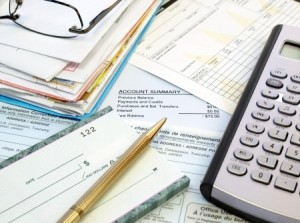Checking Accounts
Basic Checking
For the person who just wants to deposit a paycheck, pay bills, and go on with his or her life. These accounts generally require low minimum balances, but may require you to direct deposit your paychecks in order to avoid higher fees. You will not earn any interest on a basic checking account.
Free Checking
The best option for most people. You pay no monthly service charges, regardless of activity or balance. There can still be fees if you overdraft your account.
Online
Offered by banks that forgo having a traditional bank structure. Online checking accounts are often free, and include electronic bill pay and direct deposit.
Interest Bearing
If you’re self-employed or in a volatile business, this is a good place to stash 3-6 months worth of emergency cash, because it will earn a higher rate of interest. Minimum balances are usually higher than other accounts, at least if you want to avoid higher fees.
Joint
For you and the significant other in your life. Particularly useful if you share a household and expenses, as co-owners have equal access to the account.
Express
Good if you’re an ATM person, because you pay lower fees if you never set foot in the bank. These accounts, which also favor people who bank by phone or online, tend to offer unlimited check writing and low minimum balance requirements. However, if you do need to go into a bank, there will be a per-visit fee.
Lifeline
This account provides the barest necessities, with low to zero fees and minimum balances and only a certain number of checks allotted each month. These accounts are required by law in some states and are designed to accommodate low-income consumers.
Senior/Student Checking
Discounts and deals for the old and the young; you gotta love that. Perks include free cashier, traveler’s, and regular checks, no charges for ATM use, better interest rates on loans and credit cards, as well as various discounts on retail products and services.

